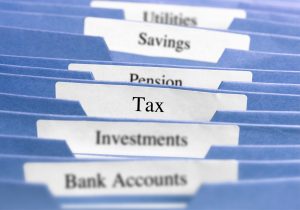If you’re a UK non-domicile person who has been living in the UK for the long term, time is running out to ensure any non-UK affairs are in order. Following a change to legislation in late 2017, anyone who has lived in the UK for 15 out of 20 years will now be ‘deemed domicile’ for all UK taxes.
This has two serious implications. The first is that anyone caught in this situation will be taxed in the UK on their worldwide income and gains, and be subject to UK inheritance tax (IHT) on worldwide assets. The second, and more complicated, is that offshore assets need to be set up to be compliant with both the US and UK tax authorities.
The new rules took effect from 6 April 2017 and anyone caught in HMRC’s net was given two years to sort out their assets. That deadline is now looming. With just a few months remaining in the current tax year, anyone who hasn’t done so should take action before it’s too late.
What has changed?
Previously, resident non-doms could pay tax on a remittance basis in the UK. Tax was paid on UK income and gains during the tax year they arise, but foreign income and gains were taxed only when they were brought – or remitted – to the UK. After being in the UK seven to nine tax years, individuals could maintain this status by paying an annual charge between £50,000 and £90,000 to sit on the remittance basis.
Crucially, residents who are deemed domicile in the UK will no longer be able to use the remittance basis for future offshore income and gains. Instead, they will be taxed on an arising basis for worldwide income and gains after 6 April 2017.
This poses a financial planning challenge for US citizens living in the UK. Previously, US citizens were mainly concerned with ensuring their investments were compliant with US tax regulations. But now investments need to be compatible with tax authorities on both sides of the Atlantic.
Fortunately, the UK government is allowing non-doms a one-off opportunity to cleanse assets that contain a blend of capital, income, and capital gains. Anyone who has an existing investment portfolio that contains mixed (untaxed) and clean (taxed) funds was given two years to cleanse these assets. This means rearranging overseas funds to separate them into their constituent clean and mixed parts. The UK allowed a ‘step-up’ in the basis cost for UK tax purposes to the value on 6 April 2017, to avoid realising large gains through this cleansing.
What is the solution?
Before anyone embarks on a potentially complex process, it is important to consider whether you plan to live in the UK for the short or long term. Cleansing assets is a complex operation that is only worth doing if there is a strong chance you will be deemed domicile in the future. In short, if you intend to return to the US (or elsewhere) within six years, it may not be necessary.
Likewise, even if you do intend to live in the UK for the longer term, it is worth considering whether it makes financial sense to go through the process of restructuring overseas funds. Given the potential for a large tax liability, it may be more beneficial from a financial planning perspective to liquidate (i.e. clean) just some, or perhaps even none, of your portfolio, relying only on the dividend income that it generates. No matter your circumstances, it is important that these funds are structured properly so they align with your financial objectives, and this can only be achieved through specialist financial advice.
Navigating the complexities of the US and UK tax regulations requires a sophisticated wealth and investment plan that takes into account your global accounts. Depending where your assets are held, your investments will need to be managed for both UK and US tax and accounting rules, with different tax calendars and in multiple currencies.
It is important to select investment products and underlying securities that are compatible in both countries, and to manage any gains and income accordingly. That’s true on an ongoing basis, not just for the purposes of creating a pot of clean assets while you can. For example, if you still have a sizeable “mixed” portfolio after April 2019, that needs to be taken into account in the management of your investments. Income from the mixed pot will still be taxed in the UK, so can then be brought onshore as a clean (taxed) asset. So it might be worthwhile maximising the income from your mixed account and investing for growth in your clean. Whatever your particular circumstances and requirements, it is vital that your investments are structured at a global and strategic level taking into account the tax position of your different accounts.
Of course, this has always been the case for US expats in the UK. What’s changing is the limit on maintaining non-dom status in the UK and, if you’re deemed domicile, the potential inclusion of all your assets in your UK tax return. Expats losing their non-dom status will need expert wealth and investment management to reconcile and optimise your assets for your UK and US tax profiles within the two-year window.
There’s a one-off chance to do this, and time is running out. Don’t bury your head in the sand, organise your investment accounts now before it’s too late.




